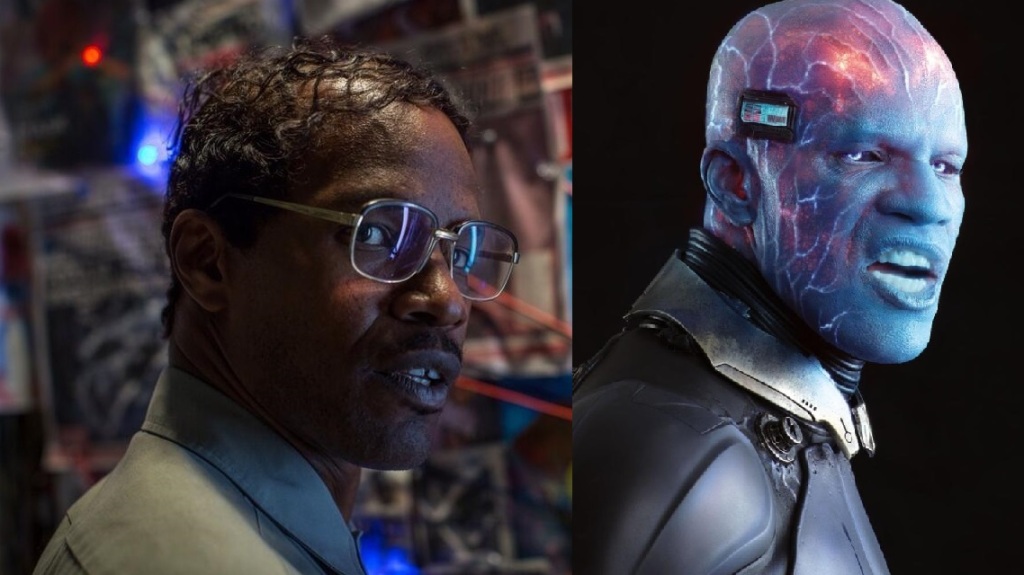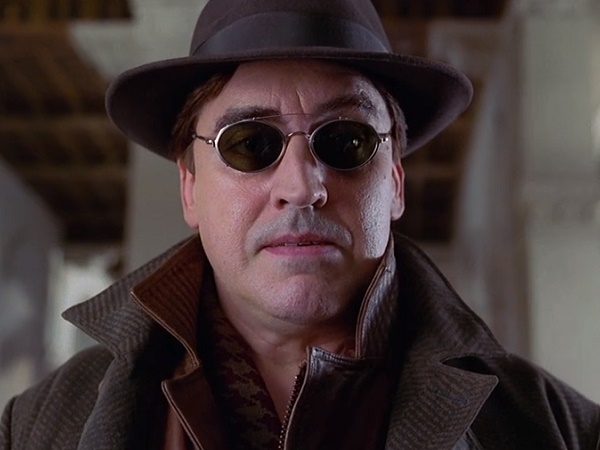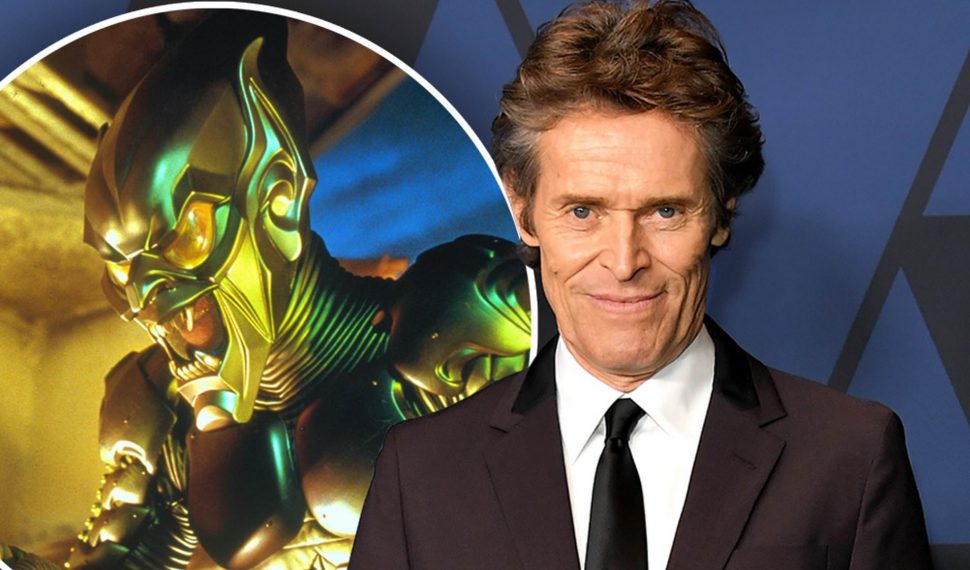
Spider-Man, since the very beginning, has been a superhero that has been described by Stan Lee to be an ‘everyday’ hero; because of his costume completely covering his identity, this can inspire anyone to be a hero.
The beauty of this realisation has us getting inspired to be the best that we can be.
Whilst understanding the struggles and burdens of growing up and figuring things out, much like Peter Parker.
Whether we were brought up on Tobey Maguire, Andrew Garfield or Tom Holland’s take on Spider-Man and Peter Parker; all three present a young man trying his best with what responsibility and power he was given. And then there is us, following Peter’s story and relating to what he is going through.
This is Two Takes, and this is One Shot. An analysis of Spider-Man: No Way Home.
Spoilers are ahead.
There is a concept of balance that needs to be addressed here. The opening of universes that collide with each other, there is going be consequences, much like a butterfly effect. Add that with a dash of determinism and we have three Peter Parkers, three Spider-Mans, eventually getting to the same conclusion, making the timeline essentially heal itself through unfortunate suffering, loss, and sacrifice.
Each version of Peter Parker has experienced loss, and in No Way Home, in their own way, each one has explained and explored it with Tom Holland, and our hearts can’t help but ache on what they are talking about.
Tobey had lost his mentors (Dr. Octavius and Norman Osborn) to madness, his best friend Harry and almost lost MJ because of an alien symbiote.
Andrew lost someone who believed in him, Captain Stacey, his re-kindled friend, and then the love of his life Gwen Stacey.
Tom Holland, although gaining a-lot in his universe, lost his mentor Tony Stark and unexpectedly his Aunt May…and then the ending of everyone who ever knew Peter Parker to forget him. But not Spider-Man.
Spider-Man was always going to remain. But for the balance within each universe to continue, sacrifices had to be made in Peter Parker’s life.
The death of Aunt May in Tom Holland’s universe had to happen. Tobey Maguire lost his best friend and Uncle Ben. Andrew Garfield lost Gwen Stacey and Uncle Ben. We can only assume that Tom Holland lost Tony Stark who could represent someone like Uncle Ben; and so, another person had to die who was very important to the character of Peter Parker to make up the balance. And for Tom’s Peter Parker, it wasn’t his best friend Ned, nor his blossoming love for MJ, but his enduring love for his aunt, who in hindsight, was the one that paraphrased the epic saying “with great power comes great responsibility”
But it’s not just loss that has brought them together. There is redemption too, spanning each generation’s favourite version of Spider-Man.
Tobey Maguire’s Peter had a moment with Otto Octavius with the same saying “trying to do better” in this universe and his own, showing that Peter is still trying his best, with Otto smiling fondly.
Andrew Garfield’s Peter has his redemption when he was able to save Zendaya’s MJ from falling to her death, to which he unfortunately couldn’t do for his Gwen. We see him almost crying, knowing that he at least saved a life in the same scenario and that he is strong enough to keep going. And Tom Holland, with the help of Tobey, not falling victim to the feelings of rage and revenge.

With only a look from Tobey, Tom could recognise that Tobey’s Peter had gone through this all before and it wasn’t going to give back what was lost, nor make him feel better.
This could be said for the villains that were brought to Tom’s universe.
Dr Connors, “The Lizard” and Electro were brought from Andrew’s universe. With Dr Octavius, Sandman and Green Goblin were brought from Tobey’s universe. These villains were the ones that had the most impact, had their own agendas and this, in this film, is where we get to understand them a little bit more. And I like that.
Tom’s Peter wanted to help them see a different viewpoint to what they are; they are all human like us, have desires, hate, rage, sadness, longing and more. Each one had good intentions, whether by accident or by trying to make something better for the greater good, their conditions made them who they had become.
Let’s take a look.
Dr Connors wanted to merge DNA from humans and reptiles together to have the re-spawning gene for people who have lost limbs. He was motivated by his own want to have two arms and so, driven by pressure, he placed himself under the first human test and turned into The Lizard. It seems as well that the gene had opened up thoughts and perhaps a voice in his head that encouraged him to make everyone become like him, to be ‘better’, ‘more advanced’, a ‘better species’. His intention got away from him. Take away the gene and he becomes rational.

Electro was Max Dillian to begin with. And although strange and perhaps considered ‘a loser’ by his peers, all he wanted was acknowledgement from people. He wanted people to remember him and like him. And so, after some scenes where he imagined Spider-Man to be his best friend, a freak accident (because his co-workers ignored what he asked so he could do his job), he became something else, and then got upset when Spider-Man didn’t know who he was. And then did the bidding of another with thoughts of ‘catching the spider’ until he died by explosion.
A-lot of something can be too much for the body and soul. And from beginning to end, Max wasn’t treated as a human being, which is saddening.

Dr Connors and Electro from Andrew’s universe could also reflect what Andrew’s Peter Parker needed. The inspiration to do good but realising the consequences and then the acknowledgement of being an actual human being behind the mask of Spider-Man.
From Tobey’s universe we have Dr Octavius. A brilliant scientist that for a bright moment ‘had the power of the sun in the palm of his hand’. However, maintaining a balance with a power such as that overloaded and broke the chip on the back of his neck that maintained Otto’s control over his bionic arms. The voices then began to muddle his mind until his intentions to remake the machine at any cost clouded his judgement. Mourning the loss of his wife and his machine, whilst having toxic voices in his ears, Otto needed help. Clouding of the mind, of judgement, and fuelled by grief can be a powerful thing.

The Sandman, Flint Marko, was running from the cops and just wanted to be a father to his daughter. Another freak accident turned him into the Sandman and so, finding Spider-Man to be an annoyance and then realising the connection of his past that marked the death of Uncle Ben, this was a journey for Peter Parker to forgive him, which he did. Flint was constantly running, perhaps from his guilt and problems as well as the cops, and this time, he decided to stay and listen to Peter.

Norman Osborn, Green Goblin, probably the most impactful, created a toxin that can genetically enhance human strength, was pressured by this boards of Directors to shut it all down. To prove them wrong, Norman tested it on himself, knowing the warnings of the side effects of rage and insanity.
Trying to better man, running out of time, and dangerously using it on himself. And again, a voice told him to do things differently, concerning Spider-Man and Peter Parker, attacking his head and heart. Manipulating and deceiving until he had the upper hand. Even at the end, with Norman switching personalities, the dominant crazy one was the one that killed him. And his last moments was himself exclaiming ‘Don’t tell Harry’.

The actions of what we have done in our lives can live on, with voices, the bad ones that we have in our own consciousness perhaps taking over sometimes. And in this case, with Norman, it was most of the time.
These three villains from Tobey’s universe could reflect what Tobey’s Peter needed to go through or was experiencing. The balance of power, of acknowledgement for Peter as well as Spider-Man, the clouding of judgement fuelled by rage and grief, the power of forgiveness and the power to quiet the voices of hate in his mind.
All of these villains have a meaning in each universe, and I can say is that I appreciate their direction of this film’s story arc. And in this universe, in Tom Holland’s universe, their redemption, their second chance, was given as a choice to which some agreed straight away, whilst others needed it thrust upon them to show them the right path. Either way, the misunderstood had a second moment in the sun, for us, the audience, to understand them even more.
Can a timeline be defined by how dark or how bright it is based only on it’s villains? I doubt it. Looking at the whole picture of what Peter Parker decides to do as himself and as Spider-Man, each choice, each mistake can emphasise a slight change in each timeline. The journey can be different but the result had to be the same. But when it comes to comparing each of three universes, ranking them if you will, from best to worst, this might become a little personal.
This will obviously be argued and no doubt people will not agree with me, but for a moment, let me explore my rankings. For me, based on the evidence, Tobey Maguire’s universe, although not perfect, shows us the best timeline or universe. Tobey’s Peter still has MJ, still has Aunt May, has learnt to live with his guilt, sacrifice and struggles and is ‘working it out’ with MJ.
Tom Holland’s universe is in the middle, even though no-one knows who he is in the end, at least they are alive and he doesn’t have to live with the guilt like Andrew Garfield’s Peter does, who has mostly everyone important or influential dying around him and we see him basically ending up where he started, with only Aunt May (minus Ben) and no friends, making his timeline the darkest one.
Each Spider-Man has had different struggles and they all experienced it in their own way, all decided what to do with what they had, and from what can be concluded from all three; Peter Parker as a character is always one that is sacrificing for a greater good, and always wanting to see the best in everyone. We can also say that Peter Parker and Spider-Man are like different sides of the same coin, and they can be a little different, have less or more influence depending on which universe we are talking about. Like I said earlier, the influence is the journey, but the outcome will always be the same.
These darker and lighter timelines/universes could emphasise the theory of No Way Home presenting a unique perspective on Determinism. All three Spiderman universes present the aspect of fate and how no matter what you do, the fateful path will find you. Even though there are a-lot of differences from each Peter Parker, they were meant to get to the same result. Tom Holland’s Peter Parker could try and do as many things as he wanted, such as joining the Avengers and trying to save the villains by giving them a chance at a better ending, but he still had to experience what Tobey Maguire’s and Andrew Garfield’s Peter Parker had to go through to get to the same plot point.
Of only being the friendly neighbourhood Spiderman and being anonymous.
Of learning loss, revenge, anger and sadness. These moments of defining their own universes by the choices and decisions (or in Tom Holland’s version, in-decision) show an aspect of threes, wherein, although they all eventually got to the same conclusion (somewhat), their journey was either a dark, middling or bright, depending on how you look at it.
Tom Holland’s Peter let Doctor Strange continue with the spell of making everyone forget Peter Parker because it had to happen to maintain balance across universes. Although many things had changed, like the villains of each universe being able to see the fault in their ideals, we can predict that Peter Parker will still maintain or lose the people he loves, shall always be Spider-Man and his identity shall always be anonymous.
In the end, it can be through choice and understanding that things have a balance that Tom Holland’s Peter agreed to have everyone forget him, for him to start a new slate.
And renting an apartment that looks very similar to Tobey Maguire’s Peter’s little apartment when he decided to become Spider-Man for real.
All in all, without realising it, Tom Holland’s Peter has actually gone and followed the same path as both Tobey and Andrew’s Peters. He had chosen Andrew’s way because no-one knows who he is, therefore, like Andrew, he is back to being the anonymous Spider-Man but with no friends to help support him and being this hero with a true understanding of all of its burdens.
And then Tom is also following Tobey’s way of being Spider-Man through being anonymous and not for glory like he did as an Avenger.
Tom Holland’s Peter is realising that it was not about chasing a dream, making it big; it is about saving those lives without a thanks. It’s about being an everyday hero, and in the end, he took the assignment seriously, understanding loss, grief, rage, revenge, love and brotherhood; with the understanding that he is not alone, he is doing the right thing and he is protecting those around him.
This is the written script for the podcast Two Takes. The decision to put the script online is for those hard of hearing. And for those who like to read.
If you prefer to listen, go to https://anchor.fm/twotakespodcast for the newest episode. Episodes available on Anchor, Spotify, YouTube and Podpage.
Please support the show on patreon.com/twotakespodcast
These words are copyrighted to Two Takes Podcast.